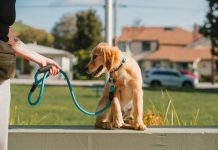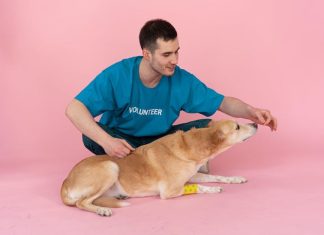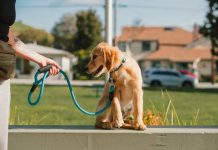Welcoming a new puppy into your home is an exciting and heartwarming experience, but it also comes with its fair share of challenges. As you embark on this delightful journey, it’s essential to equip yourself with effective training strategies to ensure a harmonious relationship with your furry friend. In this article, we delve into this year’s best puppy training tips, curated to deliver quick and positive results. With a warm and nurturing approach, these techniques will help you build a strong foundation of trust and communication, setting the stage for a lifetime of companionship and joy. Whether you’re a first-time puppy parent or a seasoned pet owner, these insights are designed to make the training process both enjoyable and rewarding for you and your new four-legged family member.
Understanding Your Puppys Unique Needs
Every puppy is a little bundle of joy, and just like humans, each has its own unique set of needs and personality traits. Understanding these needs is crucial to ensure a happy and well-adjusted companion. Puppies require consistent routines and positive reinforcement to learn effectively. Pay attention to their individual quirks—some may be more energetic and require additional playtime, while others might need a quiet space to feel secure. Tailoring your approach to suit your puppy’s personality can make training more enjoyable for both of you.
- Socialization: Introduce your puppy to various environments, people, and other animals early on. This helps them grow into confident and friendly adults.
- Diet and Nutrition: Consult with your vet to determine the best diet plan that caters to your puppy’s breed and energy levels.
- Exercise Needs: Monitor your puppy’s activity levels. Some breeds require more exercise than others to stay healthy and happy.
- Mental Stimulation: Provide interactive toys and puzzles to keep their minds engaged and prevent boredom.
Establishing a Consistent Training Routine
Creating a training schedule that you can stick to is key to seeing quick results with your puppy. Consistency helps your puppy understand what is expected and builds trust. Begin by setting aside dedicated time each day for training sessions, ensuring they are short and engaging to keep your puppy’s attention. Remember, patience is crucial, so always approach training with a positive attitude and plenty of rewards.
- Short Sessions: Aim for 5-10 minutes per session, several times a day, to keep your puppy engaged without overwhelming them.
- Same Time, Same Place: Conduct training sessions at the same time and place each day to establish a routine your puppy can anticipate.
- Consistent Commands: Use the same words and gestures for commands to avoid confusion.
- Positive Reinforcement: Reward good behavior immediately with treats, praise, or playtime.
Remember, the key to effective training is not just repetition but also making it a fun experience for your puppy. This way, you’re not only teaching them new skills but also strengthening your bond.

Positive Reinforcement Techniques for Faster Learning
Incorporating positive reinforcement into your puppy training routine can significantly accelerate their learning process. This technique is not only effective but also fosters a loving bond between you and your furry friend. Here are some key strategies to consider:
- Use Treats Wisely: Treats are a powerful motivator. Reward your puppy immediately after they perform the desired behavior to create a clear association.
- Praise and Affection: Verbal praise, along with gentle petting, reinforces positive behavior. Puppies thrive on love and attention, making this an essential component.
- Consistency is Key: Consistently rewarding good behavior helps your puppy understand what is expected of them. Stick to a routine to see faster results.
- Short Training Sessions: Keep sessions brief to maintain your puppy’s attention. Frequent, short bursts of training are more effective than longer sessions.
By focusing on these positive reinforcement techniques, you’ll not only speed up your puppy’s learning but also ensure that training is an enjoyable experience for both of you.

Socialization Strategies for a Well-Behaved Puppy
Creating a well-behaved puppy starts with effective socialization strategies that are both fun and engaging. It’s crucial to expose your furry friend to a variety of experiences, environments, and individuals during their formative months. Begin by introducing them to different sounds, surfaces, and people to help them become adaptable and confident. Here are some key strategies:
- Engage with New People: Encourage your puppy to meet new people, including children, adults, and the elderly. This helps them become comfortable around diverse groups.
- Explore Different Environments: Take your puppy to various locations like parks, pet-friendly stores, and busy streets. This will help them acclimate to different sights and sounds.
- Introduce Other Animals: Allow your puppy to interact with other vaccinated dogs and pets. This fosters positive behavior and reduces anxiety around other animals.
- Handle with Care: Regularly handle your puppy’s paws, ears, and mouth. This will prepare them for future grooming and vet visits, ensuring they remain calm.
Remember, patience and consistency are key. Reward your puppy with treats and praise for good behavior to reinforce their positive experiences. With these strategies, your puppy will grow into a well-mannered and socialized adult dog.
















